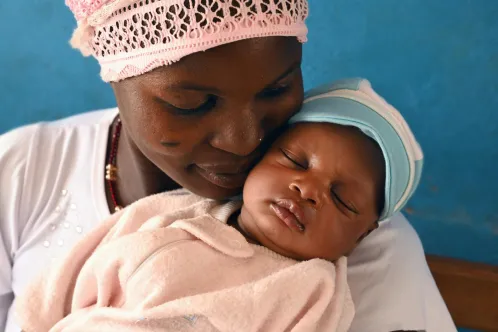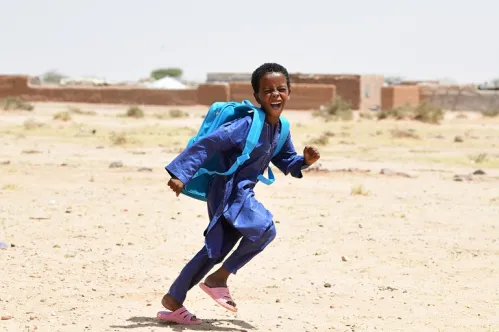Change reaction
How the impact of an education for one determined young person passes forward to her whole community – and future generations.
“I think I’m making a difference. I’m really helping,” says Hanadi, as she reflects on her work in the Za’atari refugee camp in Jordan.
She’s teaching computing to a class of Syrian children aged 11 to 16, helping the next generation to take control of their future. Her students are animated and engaged as Hanadi walks them through some basics. “I teach them enough to get a start,” she says.
Fleeing war
Hanadi arrived in Za’atari in 2013 when she was 17, having spent a year moving across Syria to escape war. She had fled the escalating violence with her family and whatever they could carry from their home near Damascus, Syria, across the border.
Back then, families at Za’atari moved out of tents into large containers, and school compounds sprang up, run by the Ministry of Education with UNICEF support. More than half of the refugees in the camp were under 18.
Worldwide, an estimated 35 million children have been forcibly displaced. Nearly half of school-age refugee children are out of school.
Developing confidence
Hanadi attended a youth centre supported by UNICEF, which provided hands-on vocational skills training alongside recreational activities, such as drawing and sport. She was relieved she could return to school and was determined to keep learning.
The training helped young people like Hanadi to manage their experiences of war and displacement, and develop skills and confidence so they could prepare for a different future.
Now, she’s lived a decade of her life in a refugee camp for 80,000 people. Yet it’s inspiring to see how Hanadi has gone from student to teacher. From that initial support, Hanadi completed her education, went to university and earned a degree.
Now she’s married to Tariq, is bringing up two children of her own, and is encouraging young Syrians to develop the practical skills they need to achieve their full potential.
Ripple effects
But the change doesn’t end there. Hanadi and her family have also benefitted from an innovative water supply, which has replaced the need for water trucks that used to stir up dust storms through the camp.
Now, clean water flows from taps inside people’s homes. It’s made the camp safer for children, reduced the risk of water-borne diseases, and meant that children and women like Hanadi don’t have to spend hours lining up to collect heavy jerrycans of water. With clean water in their homes, children are healthier and have more time to play with friends and study for their future.
Forging her future
Like so many of her peers, Hanadi has experienced things in her young life that no one should. But despite the immense challenges, she has persevered and now dedicates her life to creating a better future for the next generation.
When you leave a gift in your Will to children through UNICEF, you can help more young women like Hanadi to thrive, and help their communities to flourish and progress.
Your legacy could create ripples of change for generations of children. Learn more about the difference you can make with a gift in your Will today.



